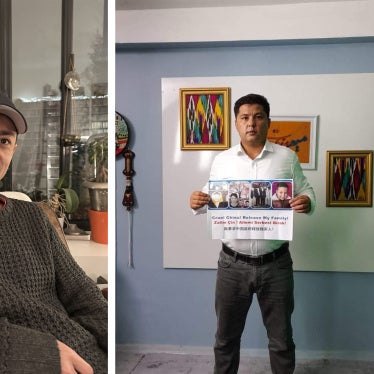The law on youth sentencing signed by Governor Jerry Brown of California on September 30, 2012, provides hope for nearly 300 youth offenders sentenced to life in prison without the possibility of parole, Human Rights Watch said today. The new law, Senate Bill 9, will allow people who were under age 18 at the time of their crime to ask the sentencing court to review their case and consider a new sentence permitting parole after serving 25 years in prison.
“With passage of Senate Bill 9, California is pushing the United States to a more humane system of sentencing youth offenders,” said Elizabeth Calvin, senior child rights advocate at Human Rights Watch. “Instead of locking up teens and throwing away the key, this law will allow careful review of these people as they grow up. This kind of periodic assessment and meaningful opportunity for release is an important step forward nationally for dealing with youth who commit serious crimes.”
California has more than 10 percent of all juvenile life-without-parole cases. The bill has unique features that are already being considered by other states as a model.
The bill failed and was reintroduced twice over several years. It was passed following several US Supreme Court and California cases reiterating the developmental differences between adults and children. In three recent cases the US Supreme Court stated that juvenile offenders “cannot with reliability be classified among the worst offenders” because they are more capable of change than are adults, and their actions are less likely to be evidence of “irretrievably depraved character.”
Support for the bill’s passage was unusually diverse: faith communities, medical associations, human rights activists, and child welfare groups joined with family members of victims, law enforcement, and many others.
“There’s a growing understanding that teens are different from adults and that laws in the US do not reflect that fact,” Calvin said. “Passage of this bill moves California a step closer to making sure the state does right by young people, even when they commit serious crimes.”
Since 2004, Human Rights Watch has done research on the use of life sentences without parole for people under age 18 at the time of the crime, andpublished a report on California in 2008. An update to the California research was published in 2012, along with a national report on prison conditions faced by youth sentenced to life without parole. California’s use of life without parole for youth offenders is among the most unjust in the nation, the research concluded. An estimated 45 percent of those serving such sentences in California for murder cases were not the killers. Many were convicted of felony murder, or for aiding and abetting the murder, for instance, because they acted as lookouts or were participating in a robbery when a murder took place.
In nearly 70 percent of the 130 California cases examined by Human Rights Watch in which the youth was not acting alone, at least one codefendant was an adult. In the majority of those cases, the adult received a lower sentence than the juvenile. Human Rights Watch found nationally that an estimated 59 percent of those sentenced to life without parole for crimes committed as juveniles were first-time offenders.
The Convention on the Rights of the Child, to which the US is a signatory, specifically prohibits life without parole sentences for people who were under 18 at the time of the crime. The US is the only country in the world to impose such sentences.
“By every measure of law and common sense, these people were children at the time of their crimes,” Calvin said. “Making Senate Bill 9 law means that California recognizes young people’s capacity to change and their potential to give back to the community.”






